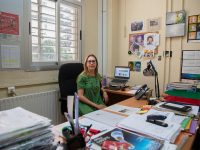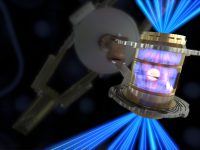Mario Bunge
«Science is the attempt to explain phenomena in purely materialistic terms»
Philosopher and physicist
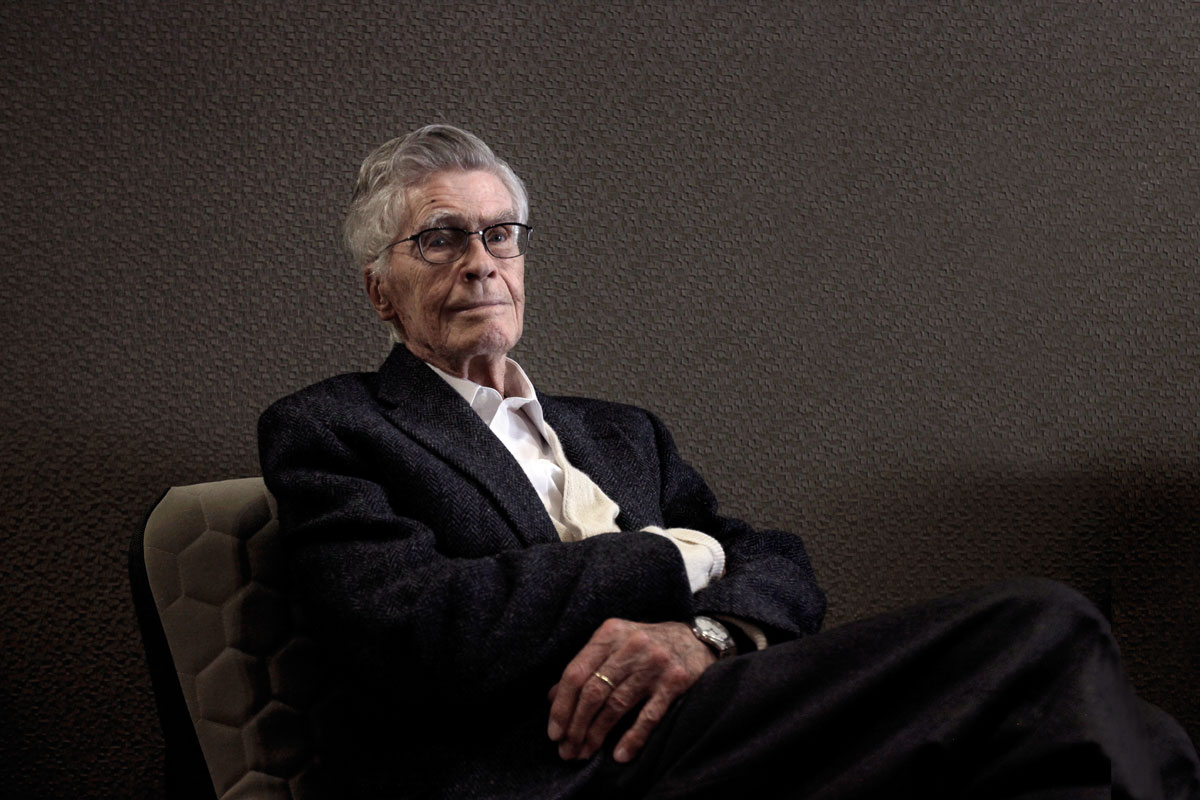
The nonagenarian Mario Bunge keeps displaying frenetic activity, as he did his whole life. We took the opportunity to interview him in Madrid as he arrived from Canada for the presentation of a book on Medicine, and we talked about the scientific spirit, socialism and the philosophy of law. A week before, he had attended a quantum physics conference in Austria. And I have heard that his ideas had a great repercussion even for criminology. The philosopher V. O. Quine met him during a conference in 1956 and wrote in his autobiography that he had become the «star» of the conference. Now we can firmly claim that his star has never stopped sparkling.
Mario Bunge was born in Argentina (1919), where he studied physics, and has been professor of Philosophy at the McGill University in Montreal (Canada). He is an essential author for the philosophy of science. He is a must-read. But where to start among his more than fifty publications? We suggest starting with his most fundamental and accessible works, like Materialismo y ciencia or La ciencia, su método y su filosofía. Volumes such as Cápsulas, which collects his short texts, are also extremely interesting. And those who want to delve in his thoughts need to tackle Philosophy of Physics (which, according to Bunge, is his fundamental book) and, of course, the eight-volume Treatise on Basic Philosophy. Bunge may seem an elderly man with movement and hearing difficulties, but that impression disappears when he debates and his arguments hit his interlocutors like lightning bolts. He is intent on never dying, since he has a myriad of ongoing projects.
«People like Michel Foucault and other charlatans claim that science is a social construction, but it is not true»
What is science?
My answer cannot be condensed in a single sentence. All the philosophers’ answers are incomplete. [Karl] Popper, for instance, claims that scientific theories have to be falsifiable. That is completely simplistic. For positivists, what matters is whether or not they are verifiable. That is not enough, either. First of all, a scientific theory must make sense. Secondly, it needs to be verifiable, not necessarily falsifiable. Thirdly, it must belong to a body of knowledge. And finally, it must suggest new observations or experiments that have not yet been attempted. If we apply this definition, for example, to [Noam] Chomsky’s theories, or to developmental psychology, we will find that they are disqualified as sciences because they claim that we are born with pre-existing knowledge. This is an unscientific claim. Chomsky’s last version is that mind and matter are and ever will be mysterious things. He declares himself a «mysterian». That is a renunciation of science.
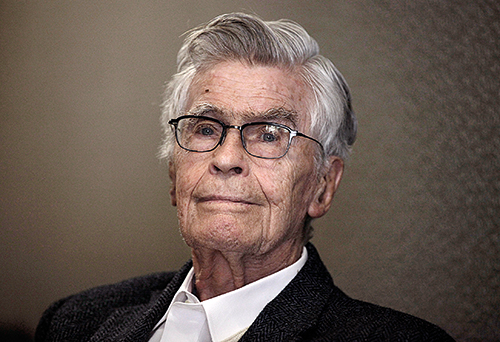
Olmo Calvo / SINC
A clear definition of science helps us to distinguish it from pseudoscience. However, there are thoughts like atomism during the nineteenth century that were reasonable but lacked an empirical base so they were branded as pseudoscientific. Do we have to apply the definition strictly?
There are protosciences, there are semi-sciences, there are seasoned sciences, and then there are pseudosciences. If we look at the history of medicine, ancient theories were the most scientific thing they had at the moment. Even Hippocrates’s humorism stated that there must be a balance between humors, and he addressed disease as an imbalance. No science is born mature, all of them need to evolve. Regarding atoms, there were many theories from Greece to Dalton and the atomic theories of the nineteenth and twentieth centuries and, although all these theories are different to each other, all of them admit there are elemental particles that are not divisible and that all compounds are formed by atoms. We can find continuations and discontinuations. All the theories provided the same, truth. And truth started partially changing. There is a concept philosophers refuse to accept: approximate truth, partial truth. For example, when one claims scientific progress does not exist because previous theories turned out to be false. But this is not so.
«I kept extensive correspondence with Popper, which allowed me to realize he had a very primary knowledge of science»
Homoeopathy is an example of pseudoscience. And yet many Spanish universities teach the subject today. What can we do to prevent ignorance from occupying public spaces?
We need to communicate the few experiments that prove that homoeopathy is, in the best of cases, innocuous. But it can potentially be harmful because it distracts people from real medicine. For instance, oncologists can prevent cancer patients from dying if they treat them on time. Whereas, if the patient is treated by a homoeopath, the time spent going through innocuous therapies might make it too late to save them.
This is the case of Steve Jobs [Apple’s CEO suffered a treatable pancreatic cancer but decided to follow an alternative therapy consisting on modifying his diet; when he wanted to go back to the conventional treatment it was already too late].
Exactly.
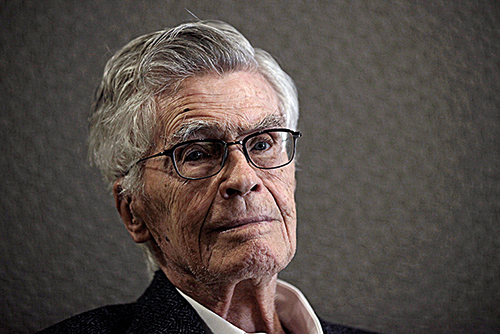
Olmo Calvo / SINC
You have met leading figures such as Karl Popper or Thomas Kuhn.
I was a good friend of Popper. I met him in 1955. I kept extensive correspondence with him, which allowed me to realize he had a very primary knowledge of science. He did not know how scientific communities worked, for example. He did not believe in constructive criticism: he did not know that the first thing a scientist must do when a piece of work is finished is asking the colleagues for their critical and constructive opinion. He did not know that. On one occasion, we had a public conversation on the matter. We talked about the concept of verification, I said it involved constructive criticism. To which he replied: «There is no such thing. When one criticises, he tries to go for the jugular!»
Unlike Popper, you have published scientific research.
Popper used second-hand information. He had never carried out any scientific research and did not have access to the original publications because he was not trained in mathematics. The only branch of mathematics he knew was probability calculation.
Kuhn stands out due to his contributions to the history of science, and his philosophy of science provided a frame to understand the past. His ideas, however, seem to push us towards relativism.
As a historian of science he was not respected by his colleagues. But he gave rise, as you just said, to relativism, which is a form of subjectivism. His ideas were confusing and sometimes contradictory. His book The Essential Tension, which he wrote later in life, is much better than The Structure of Scientific Revolutions. This book was misunderstood. In Europe, German students thought Kuhn was a revolutionary, when in fact he was quite conservative. Although confusing, Kuhn meant well. He was no clown, like his friend Feyerabend. Feyerabend knew perfectly well that what he did was a spectacle, and he truly did not mind. Kuhn, as a historian, tried to find truth, but he was confusing.
«No science is born mature, all of them need to evolve»
How have the studies on the history of science advanced?
The studies on the history of science have advanced thanks to the fact that eastern and Arabian science have been taken into account, as has the social context of science. Kuhn is often regarded as the forefather of the sociology of science, but he never studied it. A popular picture of Kuhn gave him the role. In my opinion, the most important sociologist of science was Robert Merton, who wrote important work on scientific communities. Those are serious studies. Kuhn was not a serious thinker in this sense.
How can one defend a realistic conception of science while assuming, as you do, that scientific theories are provisional?
For me, scientific revolutions are partial. There have only been two revolutions: one when science was born, in the fifth century b.C. The second was the so-called scientific revolution of 1600. The rest are partial revolutions, local changes like the start of quantum mechanics. They were not complete revolutions. The beginning of science itself was. Science started by thinking differently, without devils and gods, in a completely secular, completely rational way. It was an absolute revolution comprising the few known disciplines. For example, scientific medicine was born, supported by observation (not experimentation, which appeared relatively recently). Science is the attempt to explain phenomena in purely materialistic terms; for instance, explaining mental process as material structures. People like Michel Foucault and other charlatans claim that it is a social construction, but it is not true.
Maybe we have to understand the history of science as a set of theories that can focus reality in a broader way…
Rather, philosophy must be perfected to be able to understand better.
«I accused Heidegger of ‘Kulturverbrecher’, that is, of cultural delinquency, because he passed rubbish as grand contributions»
I met many physicists who renounce to interpretations. What do you think?
For some, it is the convenience of not taking the trouble to philosophise. Physicists are split between those who accept the Copenhagen interpretation and those who don’t. Precisely last week I was in a meeting in Vienna to discuss the matter. Many physicists are open to discussion but, undoubtedly, calculating is more comfortable than thinking.
You accuse Heidegger of being a cultural delinquent, of «issuing counterfeit currency». Could we say that one of the roles of philosophy is determining what ideas are counterfeit currency?
I accused Heidegger, during a speech in Germany, of Kulturverbrecher, that is, of cultural delinquency, because he passed rubbish as grand contributions. Most of his claims are either trivial or nonsensical. For instance: «The meaning of being is ‘being’ itself» or «the essence of time is the maturation of the being». By counterfeit currency, I mean nonsensical statements. And of course there are known statements such as «the search for truth is damaging because it can be used by the great economic powers»; «science is no more than a tool of the monopoly»; and also: «medicine is in the hands of the pharmaceutical industry so we have to choose alternative medicines». This is not just rubbish, it is caustic [it burns, it is harmful]. It separates people from the knowledge they need to live and coexist.



